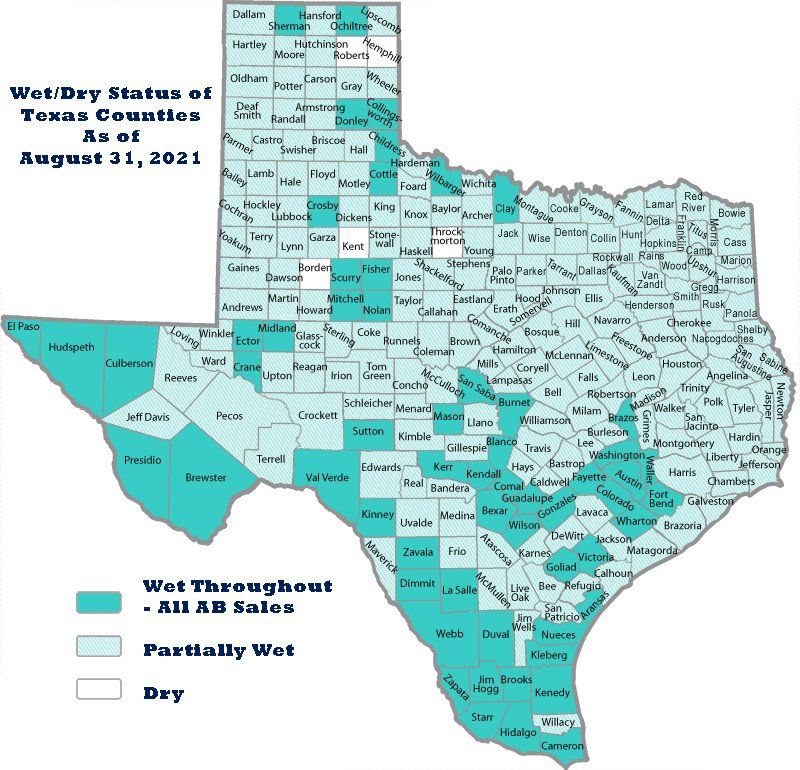TABC APPLICATION AND WET/DRY ZONES,
Texas Attorneys
When applying for an alcohol license or permit, you must first know your County and City alcohol zoning laws and regulations.
KNOW YOUR ALCOHOL ZONING LAWS
What Are Alcohol Zoning Laws?
The first step in apply for an alcohol permit is to know your zoning laws and regulations. A zoning regulation is “any charter provision, law, rule, regulation, or other enactment governing the location and use of buildings, other structures, and land.” Measurement of the distance between the place of business where alcoholic beverages are proposed to be sold and a church or hospital are:
- Along property lines of the street fronts;
- From front door to front door; and
- In direct line across intersection.
Specific measurements must be i) in a direct line from the property line of the public or private school to the property line of the place of business, and in a direct line across intersections; and ii) if the permit or license holder is located on or above the fifth story of a multistory building, in a direct line from the property line of the public or private school to the property line of the place of business, in a direct line across intersections, and vertically up the building at the property line to the base of the floor on which the permit or license holder is located.
Wet/Dry Areas - Deciding Where Alcoholic Beverages Can Be Sold
Except for Bring Your Own Beer (BYOB) establishments that are not regulated by the TABC, Texas County voters get to decide the types of alcoholic beverages sold in their area:
- Dry Area: A dry area is where the sale of alcoholic beverages are prohibited;
- Wet Area: a wet area is one in which the sale of alcohol is allowed; and a
- Partial Wet/Dry Area: partially wet county that allows alcohol to be sold in certain situations but has limitations on alcohol sales.
Map Of Wet/Dry Areas In Texas By County
Texas Alcohol TABC Attorneys
Wilson Whitaker Rynell's Dallas TABC lawyers expertly assist in obtaining liquor and beer licenses, ensuring compliance with alcohol licensing laws for your business success.
Need any help?
Additional TABC Permitting Process Info
TABC Application Review Process
The TABC Commission has exclusive discretionary authority to issue or renew a permit and to deny an application or an original or renewal of a permit. Once an application has been received, if there are any protests against it, the protest will be evaluated. If no reasonable grounds for a protest exists or has been filed, the administrator evaluates the application and if there are no issues with the application and all facts are true and legal, then the administrator will issue the permit.
If a permit application is denied the applicant may request a hearing. Once a request for a hearing is approved then a judge will provide findings of fact and conclusions of law and issue to the commission a recommendation for a decision on the application.
The mayor, city council member, chief of police, city marshal, or city attorney may file a protest with the TABC requesting that a license or permit be denied, suspended, or canceled. Cancellations must be based on the general welfare, health, peace, safety, or public sense of decency and be supported by the sworn statement of one credible person.
For a detailed look at the TABC alcohol license and permitting process, see our TABC Alcohol Permitting Process Flow Chart .
Sales, Transfers, or Inherited Alcohol License or Permit
A Texas liquor license can be moved from one location to another, so long as the Texas Alcoholic Beverage Commission (TABC) approves the change. Liquor license holder must submit an application requesting that change. Distance requirements remain the same if, at the time of the original permit or license is granted (regarding premises) the premises had satisfied the distance requirements from schools, churches, and other types of premises. Any violation of codes will result in the loss of the satisfaction of the distance requirements regarding schools. A written notice of the application must be given to officials of a public or private school before filing an application with the commission if the door in which customers can enter and exit the establishment the is within 1,000 feet of the nearest property line of the school. The copy of the notice must also be submitted to the commission with the application.
CLIENT MATTERS
5,000+
YEARS OF SERVICE
25+
Award Winning
Recognized in the legal industry as dedicated board-certified lawyers and Rising Stars.
Expert Team
Your project will be handled by legal experts every time. You will have the most experienced attorneys working for you.
Quality Representation












